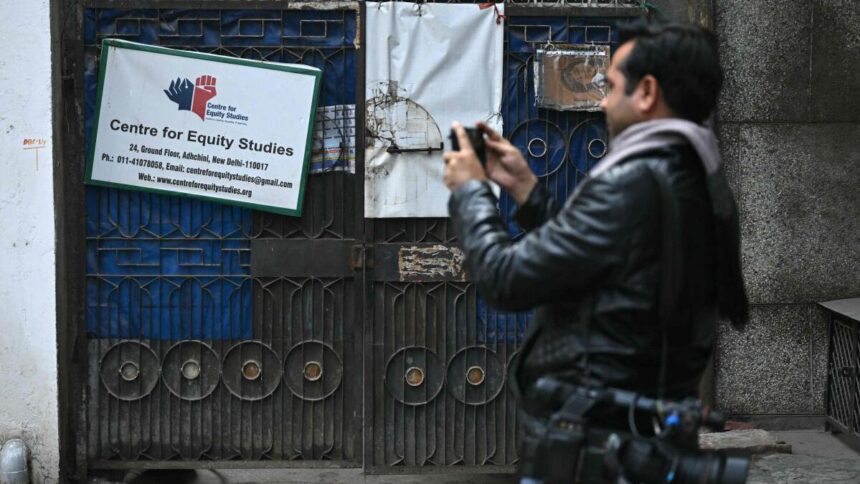Last week, the Central Bureau of Investigation (CBI) initiated a case against human rights activist Harsh Mander and his NGO, the Centre for Equity Studies (CES), on allegations of violating the Foreign Contribution (Regulation) Act (FCRA). The FIRs were filed following a complaint from the Union Home Ministry. The CBI reportedly found evidence that CES transferred funds from its FCRA account to specific individuals, which contravenes the regulations set forth by the Act.
This action against CES is part of a broader pattern of governmental measures targeting civil society organizations and NGOs. In the previous month, the FCRA registrations for the Delhi-based Centre for Policy Research (CPR) and World Vision India were revoked. Additionally, in 2023, the Home Ministry had requested a CBI investigation into Oxfam India for suspected FCRA violations. The CBI also conducted a search and opened a case against the news portal NewsClick for similar infractions in December 2023.
The FCRA is employed by the government to monitor foreign funds received by NGOs to avert potential misuse that may threaten national interests. Organizations aiming to receive foreign funding are required to register under this Act. As of February 4, more than 20,000 FCRA licenses have been annulled.
Chart 1 indicates that the rate of cancellations has surged in certain years, notably in 2012, 2015, 2017, and 2019. A significant peak was recorded in 2015, which saw over 10,000 cancellations. In contrast, cancellations in other years typically remained in single digits. It is essential to note that not all these cancellations were due to violations; many were related to the removal of duplicate registrations for the same organization.
The cancellation of FCRA licenses is just one method through which organizations are barred from accessing foreign funds. Recent legal amendments have mandated that FCRA registrations are no longer permanent and must be renewed every five years. Data from Lok Sabha reveal that 783 renewal applications were denied between 2019 and 2021.
Tamil Nadu ranks highest in the number of cancelled FCRA licenses, totaling 2,580. Additionally, 1,576 licenses in the state have expired, which is also the highest among all states. Despite this, Tamil Nadu continues to host over 2,500 active FCRA licenses, the most in the country. Other states with significant cancellation numbers include Maharashtra, Andhra Pradesh, Uttar Pradesh, West Bengal, and Karnataka. When expressed as a percentage of total licenses issued, Uttar Pradesh leads with cancellations exceeding 50%, followed by Bihar, Andhra Pradesh, Odisha, Telangana, and West Bengal, all above 40%.
A breakdown of active FCRA licenses shows that a majority of organizations are involved in educational and social services, with a notable proportion represented by religious NGOs, particularly those registered as Christian organizations.
While Tamil Nadu holds the largest number of organizations with active FCRA licenses, these entities received ₹2,507 crore in foreign contributions during the fiscal year 2021-22. In comparison, organizations registered in Delhi amassed ₹5,809 crore—the highest among all states or union territories—followed by Karnataka with ₹3,140 crore, and Gujarat and Telangana with contributions exceeding ₹1,000 crore.
Neetika Jha is a student at the Asian College of Journalism.
Source: Foreign Contribution (Regulation) Act portal and Rajya Sabha answers.
Also read: Why was FCRA registration for several NGOs cancelled? | Explained










